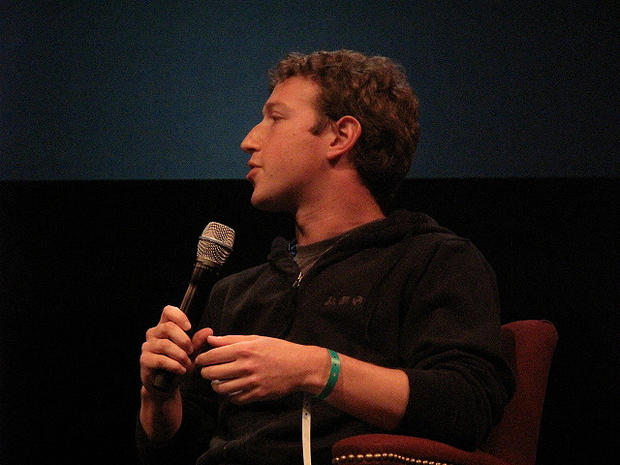Why investors should beware of Facebook's Zuckerberg
(MoneyWatch) COMMENTARY With Facebook preparing to go public in mid-May, investors might be appalled to learn that the social networker's board reportedly didn't know about the company's billion-dollar acquisition of Instagram until the deal was essentially done.
Appalled but not surprised, that is. Facebook founder and CEO Mark Zuckerberg owns 28 percent of the company's stock and controls 57 percent of the votes -- something he arranged when Facebook became a hot investment property and then readied itself for public ownership. To loosely paraphrase Facebook's SEC filing in registering its IPO, Zuck can do as he wants. And in tech circles, it's yet one more example of a company run by hubris.
From a corporate governance perspective, reports that Facebook directors were in the dark about Instagram virtually until the ink was dry on the deal are disturbing. A board is supposed to oversee management and represent -- or check -- shareholder interests. Boardmembers should be heavily involved in strategic moves like an acquisition, especially big ones. That principle appears to have gone out the window at Facebook, even with the company poised to become shareholder-owned.
As the company's SEC filings disclose:
As a result, Mr. Zuckerberg has the ability to control the outcome of matters submitted to our stockholders for approval, including the election of directors and any merger, consolidation, or sale of all or substantially all of our assets. In addition, Mr. Zuckerberg has the ability to control the management and affairs of our company as a result of his position as our CEO and his ability to control the election of our directors. Additionally, in the event that Mr. Zuckerberg controls our company at the time of his death, control may be transferred to a person or entity that he designates as his successor. As a board member and officer, Mr. Zuckerberg owes a fiduciary duty to our stockholders and must act in good faith in a manner he reasonably believes to be in the best interests of our stockholders. As a stockholder, even a controlling stockholder, Mr. Zuckerberg is entitled to vote his shares, and shares over which he has voting control as a result of voting agreements, in his own interests, which may not always be in the interests of our stockholders generally.
Of course, Facebook isn't alone. Keeping close control of companies in high-tech has become de rigueur. Google (GOOG) announced a stock split, ruffling investor feathers, even though the company's leadership triumvirate of CEO Larry Page, chairman Eric Schmidt, and co-founder Sergey Brin created a stock structure that gives their shares a 10-to-1 voting advantage.
Zynga (ZNGA) CEO Mark Pincus also stacked the deck in his company's IPO with a three-tier ownership arrangement that gave him a 70-to-1 voting advantage. Groupon (GRPN) is another that created a split-class stock structure.
The stated justification for these power plays is that control lets management get above the fray and run the company with an eye to the long term, rather than the quarterly whims of shareholders. And there is something to that. A standard complaint by leaders of public companies is that fixating on short-term results skews strategic decisions.
Yet enabling management to gain near-total control, without adequate checks and balances by shareholders, has proved at times to be disastrous. Look at News Corp's (NWS) woes, as it lurches from a phone-hacking scandal to poor performance. While things looked rosy, investors didn't mind ceding power. They are less sanguine now. Or look at how long Research in Motion (RIMM) co-CEOs Jim Balsillie and Mike Lazaridis held sway at the ailing BlackBerry maker.
The potential problem facing Facebook, Google, Zynga, and other public companies with similar stock structures is the built-in assumption that only a handful of people know what is best for the company. The structure assumes their omniscience -- a dangerous, and false, assumption. If those at the top of such a company make a blunder, there is no one and nothing that can yank on the reins.
Look at Tumblr's plans to introduce paid ads, even if founder David Karp had in the past said he opposed ads. So much for that preference. And that is minor compared to what could happen.
As was said in ancient Greece, "Those whom the gods would destroy they make mad." And those companies whom the gods would destroy, they send unchecked arrogance.
Image: Flickr user Crunchies2009
